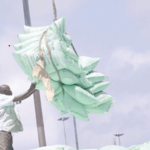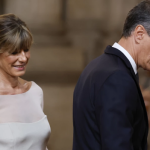In Bangladesh, the number of arrests related to recent violence has approached 1,200, according to an AFP tally on Tuesday, following widespread unrest triggered by protests over employment quotas. At least 174 people have died, including several police officers, based on a separate AFP count from reports by police and hospitals.
What started as protests against politicized admission quotas for coveted government jobs escalated into some of the worst unrest seen during Prime Minister Sheikh Hasina’s tenure.
The government responded by imposing a curfew, deploying soldiers across the country, and enforcing a nationwide internet blackout, which severely disrupted daily life.
On Sunday, the Supreme Court reduced the number of reserved positions for certain groups, including descendants of “freedom fighters” from Bangladesh’s 1971 liberation war against Pakistan. The student group leading the protests paused their demonstrations for 48 hours on Monday, with their leader expressing regret over the violence that accompanied their demands for reform.
Despite the army chief’s statement that the situation was “under control,” restrictions remained in place on Tuesday. The streets of Dhaka saw a significant military presence, with bunkers at some intersections and key roads blocked by barbed wire, though there were also more people and rickshaws on the streets.
“I did not drive rickshaws the first few days of curfew, But today I didn’t have any choice,” rickshaw driver Hanif said.
“If I don’t do it, my family will go hungry.”
The head of Students Against Discrimination, the main group organising the protests, told AFP in his hospital room Monday that he feared for his life after being abducted and beaten, and the group said Tuesday at least four of its leaders were missing, asking authorities to “return” them by the evening.
The response to the protests in Bangladesh has faced significant criticism. Nobel Peace Prize laureate Muhammad Yunus has called on “world leaders and the United Nations to do everything within their powers to end the violence,” citing the ongoing crisis.
The 83-year-old economist, known for his work in alleviating poverty through microfinance, has clashed with Prime Minister Sheikh Hasina, who has accused him of exploiting the poor.
Yunus expressed grave concerns, stating, “Young people are being killed at random every day,” and criticized the lack of transparency from hospitals regarding the number of casualties.
Diplomats in Dhaka have also raised issues with the government’s handling of the situation. US Ambassador Peter Haas reportedly criticized the foreign minister for presenting a one-sided video during a briefing to diplomats.
Government officials have consistently blamed the protesters and opposition for the unrest.
Throughout the violence, police have made numerous arrests across various regions: at least 200 people in Narayanganj and Narsingdi, 80 in Bogra, 168 in Gazipur, 75 in Rangpur, and 60 in Barisal. Additionally, 80 people were arrested in rural and industrial areas of Dhaka, bringing the total number of arrests to approximately 1,195.
The protests were fueled by discontent among the 18 million unemployed youth in Bangladesh, exacerbated by the reintroduction of a quota scheme in June, which had been suspended since 2018.
The Supreme Court’s decision on Sunday to reduce the quota from 56% to 7%—primarily for descendants of “freedom fighters” from the 1971 liberation war—did not fully meet the protesters’ demands, who sought the complete removal of the “freedom fighter” category.
Late Monday, Hasina’s spokesman confirmed to AFP that the prime minister had authorized a government order to implement the Supreme Court’s judgment.
Critics argue that the quota system is exploited to fill public jobs with loyalists of Hasina’s ruling Awami League party and accuse her administration of manipulating the judiciary.
Sheikh Hasina, 76, has governed Bangladesh since 2009 and secured her fourth consecutive term in January, in an election widely criticized for lacking genuine opposition. Her government faces accusations from human rights groups of using state institutions to solidify its power and suppress dissent, including through the extrajudicial killing of opposition activists.
The recent violence has sparked speculation about Hasina’s future, but she remained defiant, telling a gathering of businessmen, “Sheikh Hasina never flees.”


